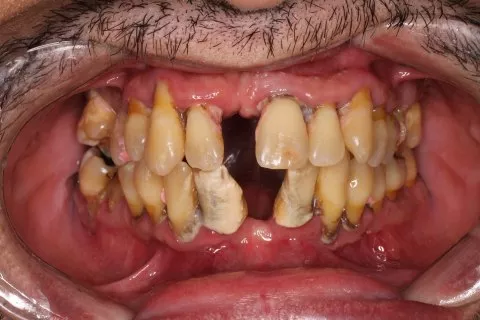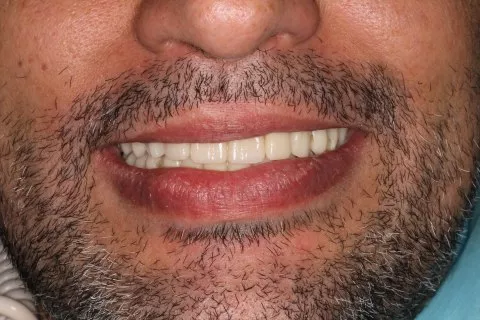Orthognathic surgery corrects a wide range of dental and skeletal abnormalities.
The results of orthognathic surgery may have a significant and positive impact in many areas of life.
The patient’s appearance may be altered to some degree before orthognathic surgery is used to correct surgical problems.
Take advantage of the surgery
Orthognathic surgery settles teeth and jaws arrangement into positions more harmoniousand more functional. The goal of this treatment is to improve teeth occlusion and functionality; while numerous patients see difference (improvement) in appearance and speech. Results of orthognathic surgery may have a significant and positive impact in many areas of life.
People who can benefit from orthognathic surgery include those with an improper bite or jaws that are positioned incorrectly. Jaw growth is a gradual process and in some instances, the upper and lower jaws may grow at different rates. The result can be a host of problems that can affect chewing function, speech, long-term oral health and appearance.
The patient’s appearance may be altered to some degree before orthognathic surgery is used to correct surgical problems.
Difficulty in the following areas should be evaluated:
- difficulty in chewing, biting or swallowing
- speech problems
- chronic jaw or TMJ pain
- open bite
- protruding jaw
- breathing problems
Any of these symptoms can be congenital, be acquired after birth as a result of hereditary or environmental influences or as a result of trauma to the face. Before any treatment begins, a consultation will be held to perform a complete examination with x-rays.
During the pre-treatment consultation process, feel free to ask any questions that you have regarding your treatment. When you are fully informed about the aspects of your care, you and your dental team will make the decision to proceed with treatment together.
Before surgery, orthodontic appliances – i.e. “braces” – will move your teeth in the correct position. Because the teeth arrangement will be such as to obtain the right relationship after surgery, you may get the impression that teeth of both jaws status worsens instead of improving. That will be due to the jaws’ new position that will occur after surgery when it will fit perfectly.
As the presurgical orthodontic treatment approaches, recent x-rays, photographs and molds may be required to guide the surgery. The surgery is performed under general anesthesia in a hospital and may last from one to several hours.
The Oral and Maxillofacial Surgeon will move jaws according to your individual needs. In some cases it may be necessary to add or remove bone or even alter its configuration. Surgical immobilizing materials will be used to stabilize bones to their new positions. Incisions are performed intraorally so as not to leave any scars on the face after surgery.
After surgery, the surgeon will give you instructions for a modified diet, tailored to your needs for immediate postoperative period. Transition to a normal diet will be possible after 4-6 weeks. Also, there will be a period of 3-4 weeks to stop smoking and limit strenuous physical activity.
The pain that follows orthognathic surgery is easily controlled with painkillers and the patient usually returns to work or school 1-3 weeks after surgery, depending on how he/she may feel. The first (and most critical) recovering period is about 6 weeks so that the bones will reach the required strength and toughness of preoperative period.


